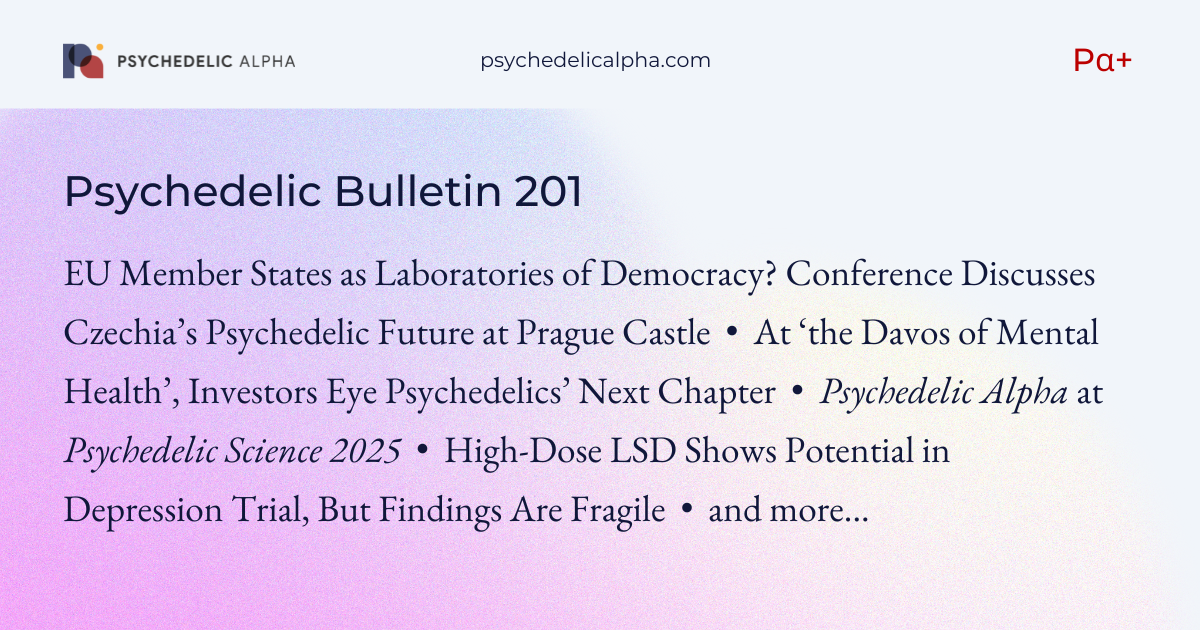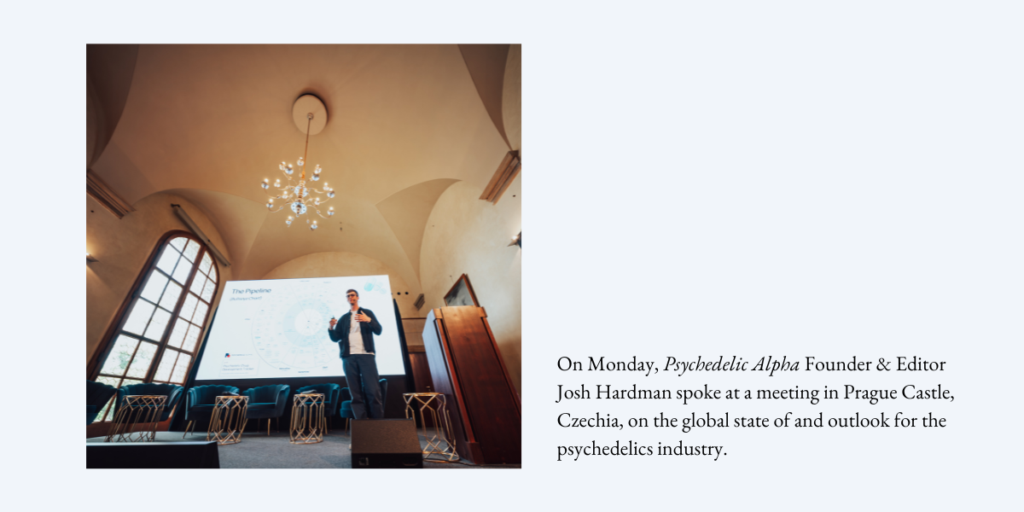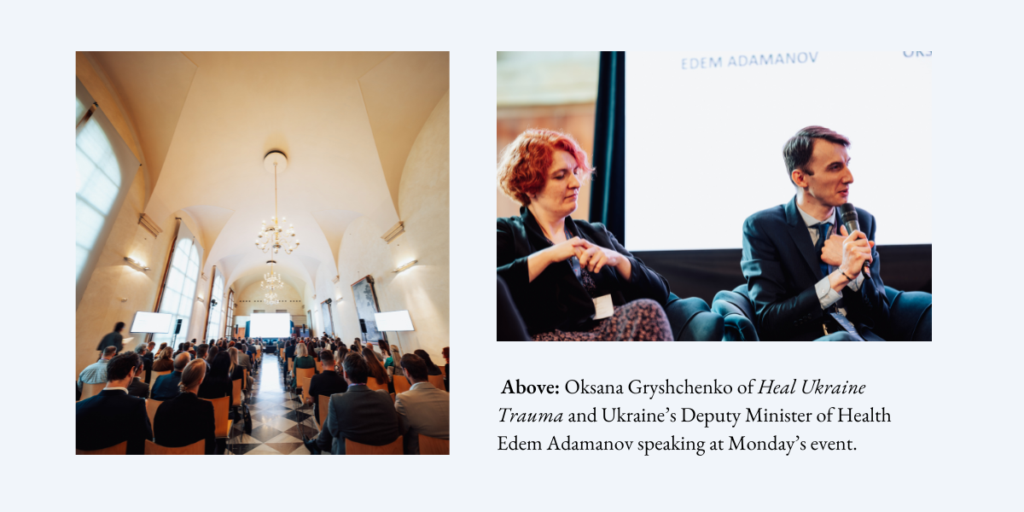In this Issue
- The Psychedelics Circuit: Dispatches from Prague and London, Looking Ahead to Denver
- EU Member States as Laboratories of Democracy? Conference Discusses Czechia’s Psychedelic Future at Prague Castle
- At ‘the Davos of Mental Health’, Investors Eye Psychedelics’ Next Chapter
- Join Us in Denver: Psychedelic Alpha at Psychedelic Science 2025
- High-Dose LSD Shows Potential in Depression Trial, But Findings Are Fragile
- Lone Star State Becomes Leader in Ibogaine Research
- One-Year Outcomes from Psilocybin Study in Veterans with TRD
- A Series of Unfortunate Events: Recent Incidents Underscore Psychedelic Safety
- and more…
***
Sign-in or join Pα+ to continue reading this Issue of the Psychedelic Bulletin…
Join Pα+ Today
Independent data-driven reporting, analysis and commentary on the psychedelics space: from business and drug development through to policy reform and culture.
Already a member? Log In
✓ Regular Bulletins covering key topics and trends in the psychedelics space
✓ Regular articles and deep dives across psychedelic research, policy and business
✓ Interviews with insiders
✓ Monthly interactive database and commentary on psychedelic patents
✓ Quick-take analysis of major developments
✓ A Library of primers and explainers
✓ Access to our full back catalogue




